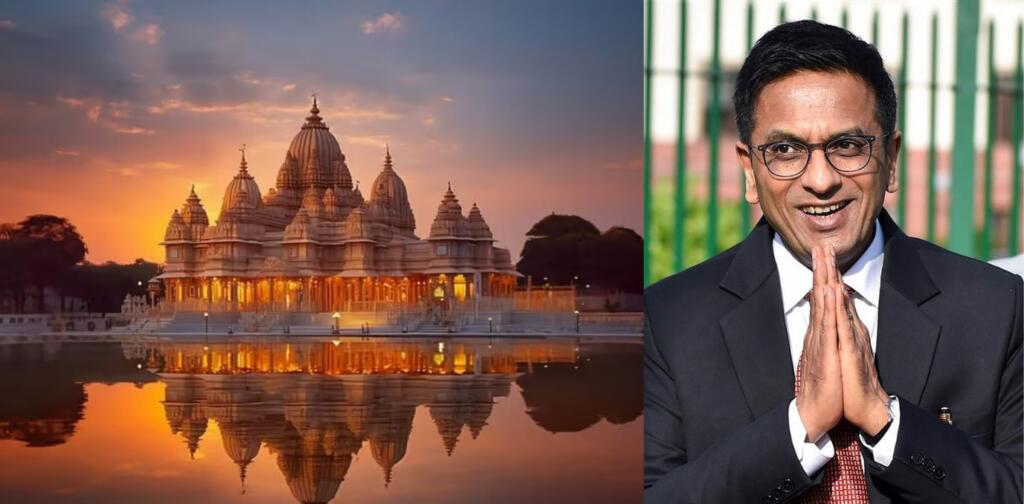Addressing a gathering in Maharashtra, Chief Justice of India DY Chandrachud said that the Ayodhya-Babri Masjid dispute was a case which was very difficult to solve and he had to ask God for a solution.
According to PTI, CJI Chandrachud observed that the Ayodhya dispute was tough to resolve. As a result, he sat before the deity, seeking a remedy.
Chief Justice of India (CJI) DY Chandrachud remarked on Sunday that he had prayed to God for a solution to the Ram Mandir-Babri Masjid controversy, which was resolved by the Supreme Court in 2019.
CJI Chandrachud was a member of the Bench led by then-CJI Ranjan Gogoi, which ruled in favour of Hindu parties after hearing the case for more than three months.
As a result, he sat before the deity, seeking answers to his questions.
He said, “Very often we have cases (to adjudicate) but we don’t arrive at a solution. Something similar happened during the Ayodhya (Ram Janmabhoomi-Babri Masjid dispute) which was in front of me for three months. I sat before the deity and told him he needs to find a solution.”
He was addressing the citizens of his hometown Kanhersar in Maharashtra’s Khed taluka, where he was honored.
In his speech, the CJI also mentioned that he prays on a regular basis.
He said “Believe me, if you have faith, God will always find a way.”
On November 9, 2019, the Supreme Court decided the Ayodhya issue, resolving the century-old dispute over the contested land in Ayodhya in favour of Hindu groups.
The bench that decided the matter included then-CJI Ranjan Gogoi, incumbent CJI DY Chandrachud, and Justices SA Bobde, Ashok Bhushan, and S Abdul Nazeer.
While determining that the placement of idols inside the Babri Masjid mosque and the demolishing of the Masjid in 1992 were illegal acts, the Court permitted the construction of the Ram Temple on the ground where the Masjid stood before being demolished. As compensation for the unlawful destruction of the Masjid, the Court granted 5 acres of land at an alternate location for the construction of a new mosque.
